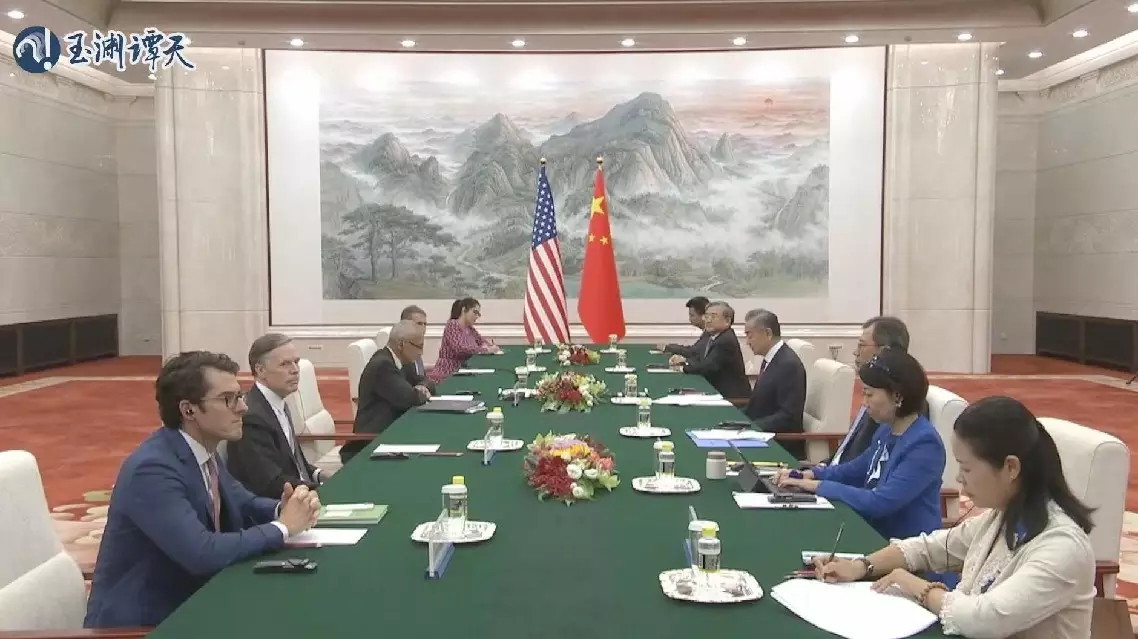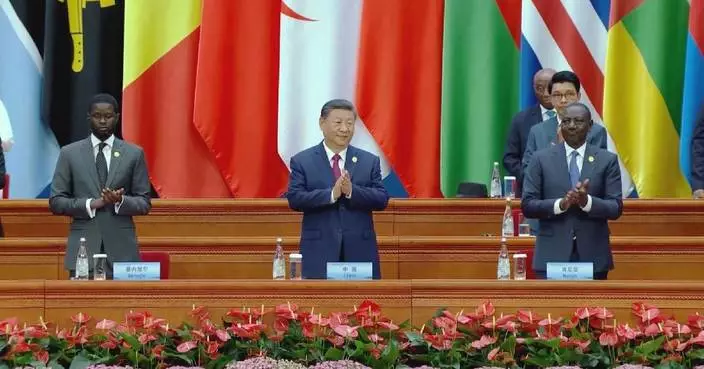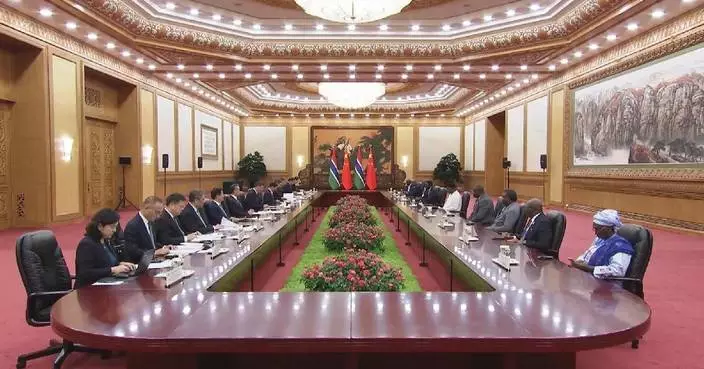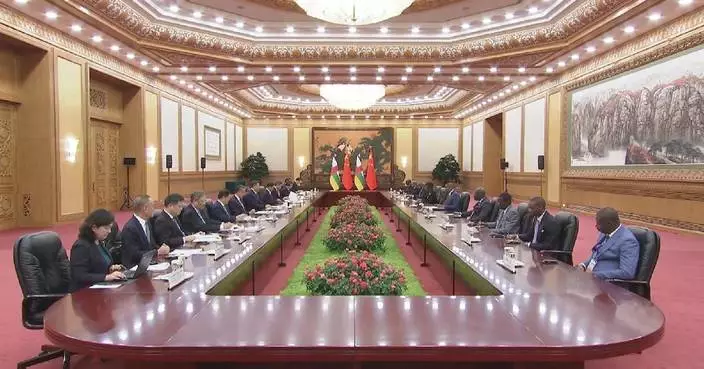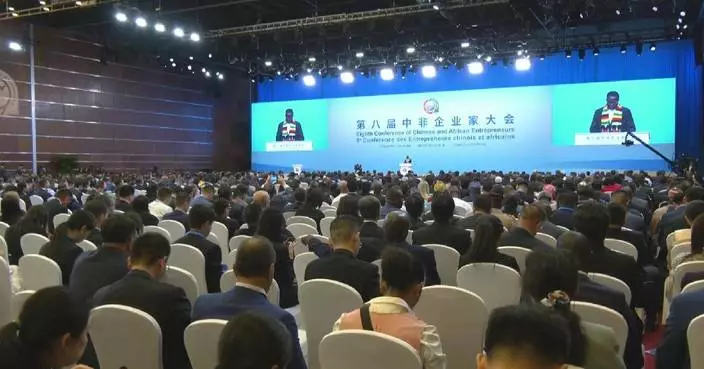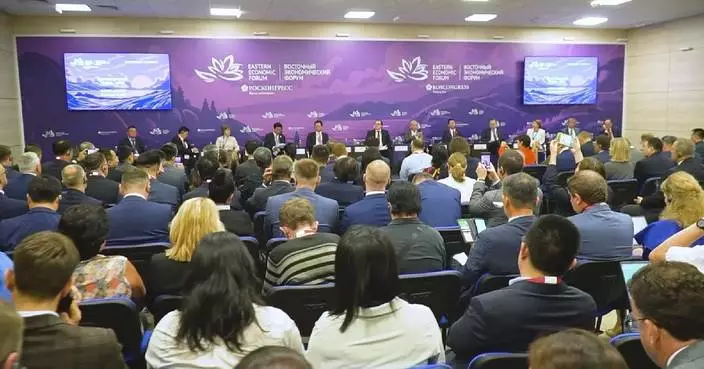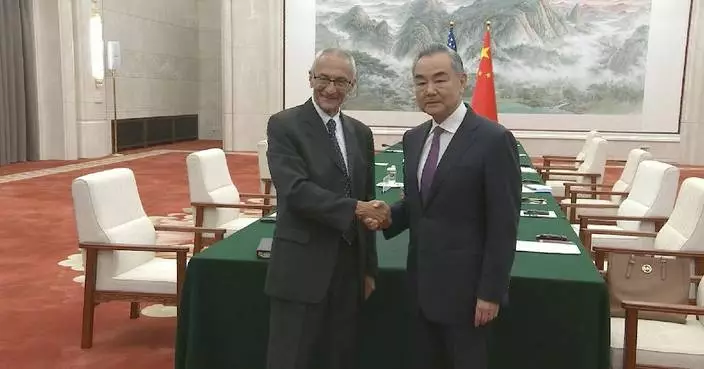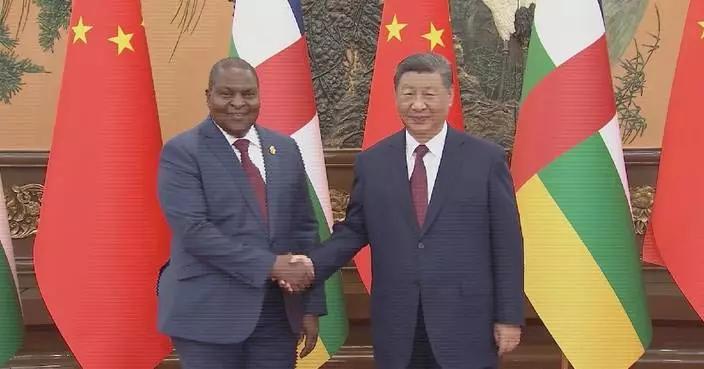A grand exhibition of ancient Egyptian artifacts in Shanghai has provided Chinese visitors with profound insights into the rich history of the Nile, fostering cultural exchanges between two of the world's oldest civilizations.
Titled "On Top of the Pyramid: The Civilization of Ancient Egypt," the exhibition is the largest of its kind held outside Egypt in the past two decades, co-hosted by the Shanghai Museum and Egypt's Supreme Council of Antiquities (SCA).
Curated by Chinese scholars, the exhibition offers a comprehensive presentation of ancient Egyptian civilization and showcases the latest findings from joint archaeological endeavors between China and Egypt.
In the "Land of the Pharaohs" exhibition hall, alongside over five hundred Egyptian artifacts, are 19 Chinese artifacts from the Shanghai Museum's collection, juxtaposed with ancient Egyptian artifacts. In display cases showcasing ancient Egyptian potteries, colorful potteries from China's Majiayao culture (3300 - 2050 BC) period are placed side by side.
"In examining the process of producing colored pottery by these two civilizations, we may find out that the clay and pigments used are actually similar, but their expressive intentions are quite different. For instance, ancient Egyptian pottery emphasizes imagery and pictorial themes, while Majiayao colored pottery from China centers on geometric patterns. Rather than a mere chronological comparison, we focus more on figuring out the shared aspects across the developmental trajectories of these civilizations," said Chu Xin, deputy director of exhibitions of Shanghai Museum.
In sections depicting the intellectual life of ancient Egyptians, visitors can observe their profound reverence for scholarship.
"Here, a scribe sits, unfolding a papyrus scroll on his knee, depicting a typical portrayal of an ancient Egyptian scribe, flanked by the protective deities known as the gods of wisdom," said Yan Haiying, lead curator of the exhibition who is also a professor with the Shanghai International Studies University.
Adjacent to these sculptures are rubbings from ancient Egyptian steles collected by officials from the Qing Dynasty (1644-1911), which create an intriguing contrast with nearby ancient Egyptian papyri.
"Through such exhibitions, we aspire to evoke a richer set of connections in mind among our Chinese and Asian audiences with regard to these ancient civilizations. It also encourages contemplation of our present circumstances, fostering ongoing advancement through mutual learning and cultural exchange," said Chu Xiaobo, director of Shanghai Museum.
Both China and Egypt boast ancient civilizations with rich histories and a shared cultural heritage. This exhibition marks the first official collaboration between Chinese state-run museums and the Egyptian government, part of Shanghai Museum's ongoing "Dialogue with the World" series aimed at fostering mutual understanding between these distinguished ancient civilizations.
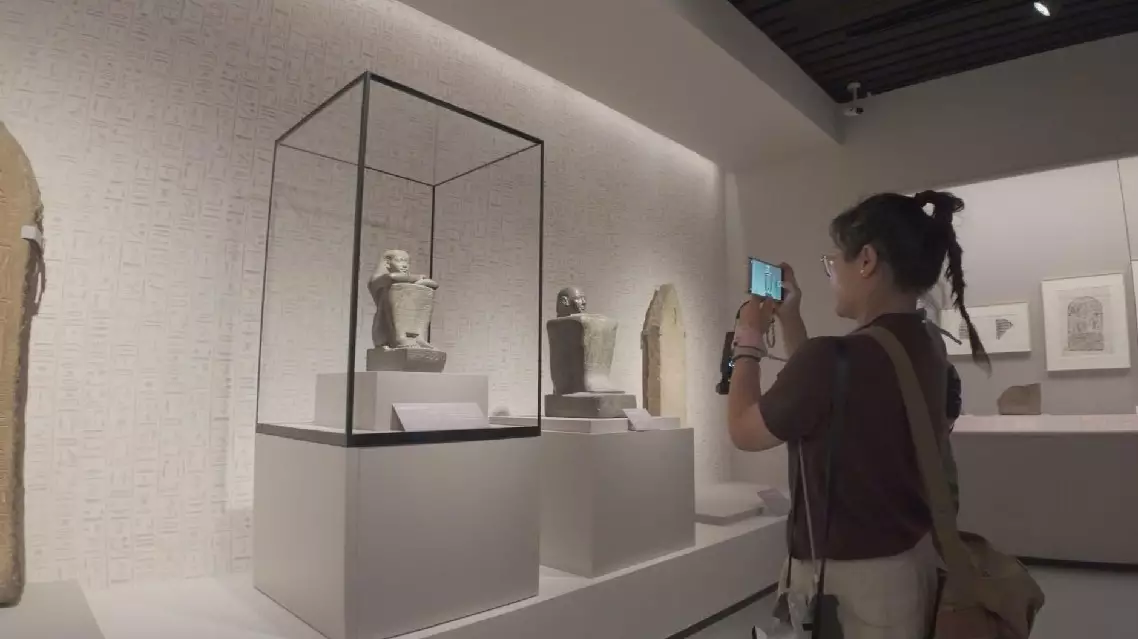
Egyptian exhibition in Shanghai bridges ancient cultures between world’s oldest civilizations


